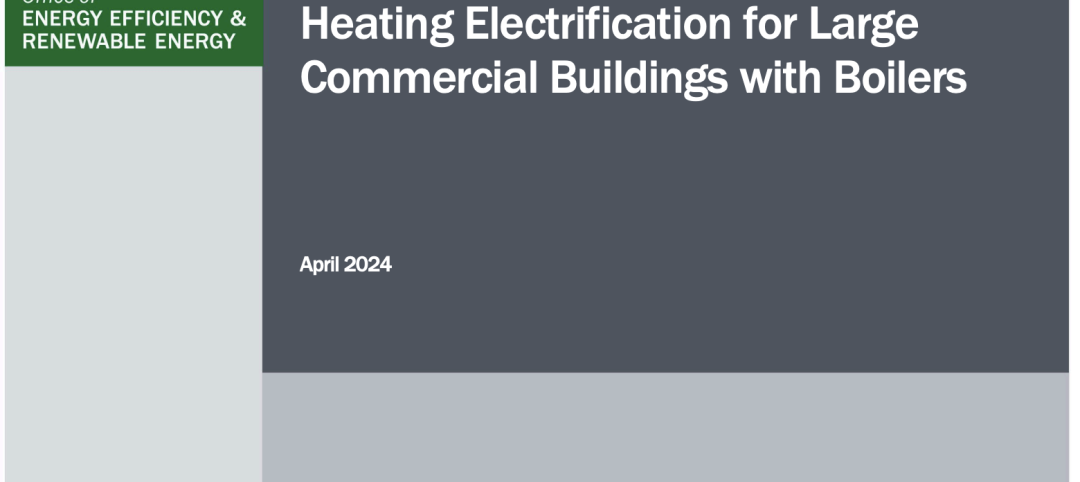New York’s Building Code Council is set to include the All-Electric Buildings Act in its 2025 code update.
The Act would ban natural gas and other fossil fuels in new buildings. The 2025 code update will undergo a public comment period before the council votes on the new code provisions.
If the council votes in favor, all-electric cooking and heating will be required for new buildings of less than seven stories by 2026, and 2029 for taller buildings. To meet its 2050 net-zero emissions goal, New York will have to install an estimated 396,000 heat pumps above expected sales.
Funds from the Inflation Reduction Act and Bipartisan Infrastructure Law are available to convert existing buildings to all-electric status. Low-income New Yorkers can qualify for electrification and climate efficiency rebates.
Related Stories
MFPRO+ News | May 24, 2024
Austin, Texas, outlaws windowless bedrooms
Austin, Texas will no longer allow developers to build windowless bedrooms. For at least two decades, the city had permitted developers to build thousands of windowless bedrooms.
Resiliency | May 24, 2024
As temperatures underground rise, so do risks to commercial buildings
Heat created by underground structures is increasing the risk of damage to buildings, recent studies have found. Basements, train tunnels, sewers, and other underground systems are making the ground around them warmer, which causes soil, sand, clay and silt to shift, settle, contract, and expand.
MFPRO+ News | May 21, 2024
Massachusetts governor launches advocacy group to push for more housing
Massachusetts’ Gov. Maura Healey and Lt. Gov. Kim Driscoll have taken the unusual step of setting up a nonprofit to advocate for pro-housing efforts at the local level. One Commonwealth Inc., will work to provide political and financial support for local housing initiatives, a key pillar of the governor’s agenda.
Building Tech | May 21, 2024
In a world first, load-bearing concrete walls built with a 3D printer
A Germany-based construction engineering company says it has constructed the world’s first load-bearing concrete walls built with a 3D printer. Züblin built a new warehouse from a single 3D print for Strabag Baumaschinentechnik International in Stuttgart, Germany using a Putzmeister 3D printer.
MFPRO+ News | May 20, 2024
Florida condo market roiled by structural safety standards law
A Florida law enacted after the Surfside condo tower collapse is causing turmoil in the condominium market. The law, which requires buildings to meet certain structural safety standards, is forcing condo associations to assess hefty fees to make repairs on older properties. In some cases, the cost per unit runs into six figures.
Codes and Standards | May 10, 2024
California law that ended single-family zoning is struck down by court
A law ending single-family-home-only zoning in California was ruled unconstitutional by a Los Angeles County Superior Court judge. The decision could lead to the law being invalidated in the state’s largest cities.
Sustainability | May 10, 2024
Perkins&Will’s first ESG report discloses operational performance data across key metrics
Perkins&Will recently released its first ESG report that discloses the firm’s operational performance data across key metrics and assesses its strengths and opportunities.
Codes and Standards | May 10, 2024
Guide on electrifying space heating for large commercial buildings with boilers released
The U.S. Department of Energy has released a guide on electrifying space heating for large commercial buildings with boilers. The guide summarizes key considerations for people seeking to retrofit existing large commercial and multifamily buildings, particularly those that currently heat spaces using fossil fuel-fired boilers.
MFPRO+ News | May 10, 2024
HUD strengthens flood protection rules for new and rebuilt residential buildings
The U.S. Department of Housing and Urban Development (HUD) issued more stringent flood protection requirements for new and rebuilt homes that are developed with, or financed with, federal funds. The rule strengthens standards by increasing elevations and flood-proofing requirements of new properties in areas at risk of flooding.
Government Buildings | May 10, 2024
New federal buildings must be all-electric by 2030
A new Biden Administration rule bans the use of fossil fuels in new federal buildings beginning in 2030. The announcement came despite longstanding opposition to the rule by the natural gas industry.

















